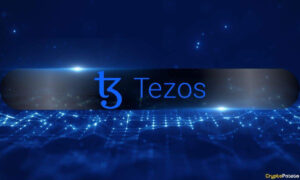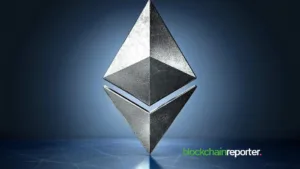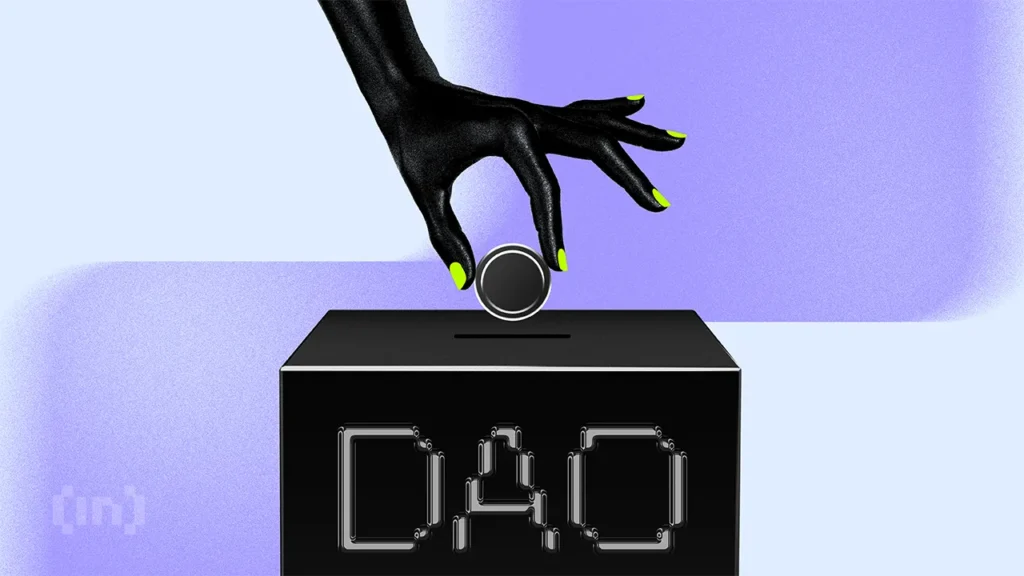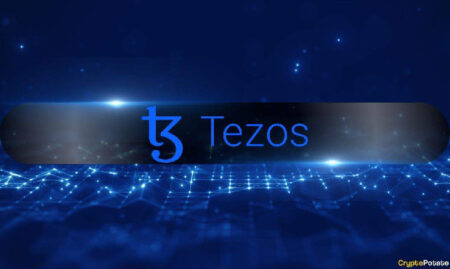Decentralized autonomous organizations (DAOs) have become popular in Web3 as an alternative to traditional organizational structures. Their bottom-up decision-making, driven by token-based voting enforced and executed by smart contracts, aims to increase transparency and participation.
However, as DAOs grow beyond theoretical governance experiments, they face significant hurdles. BeInCrypto spoke with Danny Cooper, Venus Protocol’s Vanguard Team Lead, to understand how low voter turnout, large token holders, and decision paralysis hinder effective leadership.
A Promising Alternative
DAOs were once hailed as the future of governance, structures that could operate without centralized control, guided purely by code and community consensus. The vision was simple: a transparent, democratic system where every participant has a voice and makes decisions through token-based voting.
These organizations use a blockchain to facilitate self-enforcing rules or protocols. The blockchain’s smart contracts store these rules, while the network’s tokens incentivize users to safeguard the network and vote on regulations.
Since the first DAO launched on Ethereum in 2016, these organizations have entered the realms of venture capital, social initiatives, and public goods funding. But with their philosophy now implemented, their flaws have begun to surface.
DAOs often struggle with balancing decentralization and the need for effective leadership, raising questions about whether they are genuinely the ideal governance model or simply a stepping stone toward something more refined.
Lowered Voter Turnout
DAOs operate without a central authority, with governance decisions distributed among their members through code-based mechanisms. This decentralized structure was designed to empower members to participate in decision-making through token voting mechanisms.
However, there have been many instances where equally distributed voting power did not yield the expected results. Frequent voting on every issue can discourage participation.
“As DAOs grow, decision-making can indeed become cumbersome,” said Cooper.
Since many DAOs use referendum-style voting, they assume members will thoroughly research proposals. However, time constraints, lack of information, or simple disinterest can lead to low voter turnout or uninformed voting decisions.
Waiting for every DAO member to vote on a proposal can also slow the decision-making process, especially when an urgent solution is needed.
Segmenting voting matters by priority and topic and assigning them to specific delegates can solve this issue.
“Decentralized decision-making can scale with the implementation of sub-DAOs and layered governance systems, which delegate decision-making to smaller, focused groups. This approach reduces operational complexity while empowering specialized teams to act autonomously within defined boundaries. Advanced governance tooling and clear, codified processes ensure efficiency and coherence across a growing, decentralized community,” Cooper added.
Other options can remedy decreased participation, though they also come with risks.
Increased Centralization Among Major Players
To address low voter turnout, some DAOs allow less active participants to entrust their voting power to more informed members to increase overall engagement.
However, this system does not eliminate the risk of influence by the original owners. They could still acquire a majority of transferable voting tokens, allowing them to manipulate decisions that may not align with the DAO’s best interests.
Consequently, centralization risks also rise. In December 2024, the Cambridge Centre for Alternative Finance, a research institute based at the University of Cambridge, published a study examining the centralization level among decentralized finance (DeFi) projects.
The analysis focused on the following DAOs: AAVE, Compound Finance, Convex Finance, Curve Finance, Frax Finance, Instadapp, Lido, MakerDao, Rocket Pool, and Uniswap.
The study revealed that power within several leading DeFi DAOs is highly concentrated, with governance often dominated by a few influential players.
Researchers used the Gini coefficient to measure the DAOs’ governance token distribution and voting. This coefficient measures the inequality of governance token distribution within these protocols, with 1 representing maximum inequality and 0 representing perfect equality.

The Cambridge study found that these 10 DAOs had Gini coefficients ranging from 0.97 to 0.99 as of October 2024. For comparison, South Africa, the most income-unequal country in the world, had a Gini coefficient of 0.63 in 2024, according to Statista data.
MakerDAO had the highest coefficient of 0.99, while Rocket Pool had a coefficient of 0.97.
Whale Activity Compromises DAO Governance
The concentration of voting power among high-net-worth individuals can also marginalize smaller token holders, potentially leading to a situation in which a small group of influential actors effectively controls governance decisions.
“Whale influence in DAOs can skew governance outcomes,” said Cooper.
The concentration of power within some DAOs also raises concerns about potential rent-seeking behavior and conflicts of interest. When token holders are involved in multiple projects, their own interests may influence decisions within a particular DAO, potentially leading to outcomes that do not align with the best interests of the DAO.
A notorious example of whale risks in DAOs came to light in February 2023 when a Bubblemaps investigation revealed that Andreessen Horowitz controlled more than 4% of Uniswap’s UNI token supply.

Uniswap requires 4% of votes to pass any proposal, meaning that wallets owned by a16z can collectively change the outcome of any governance vote, challenging Uniswap’s claim of having a decentralized governance model.
The firm used its governance control that month when it leveraged a 15 million UNI token voting block to vote against a proposal to use the Wormhole bridge for Uniswap V3 deployment on the BNB Chain. a16z is apparently heavily invested in rival bridge platform LayerZero, which it favored for the deployment.
According to Cooper, DAOs must implement mechanisms to safeguard the organization from these types of manipulation in cases of governance attacks.
“Enhanced transparency through auditable voting records and the introduction of reputation-based deterrents penalize malicious actors, while layered safeguards like quorum thresholds prevent collusion and vote-buying from compromising governance integrity,” he said.
Ensuring that these mechanisms work will prove vital to avoid critical threats like vote-buying, whale activity, or collusion.
Scalability Issues
Many of the issues facing DAOs are directly or indirectly linked to the limitations in their scalability. These challenges pose significant risks to long-term growth and development.
As the number of participants and the volume of transactions increase, the DAO’s infrastructure may struggle to keep pace, potentially leading to delays in processing transactions and other inefficiencies.
Balancing the diverse interests of a DAO’s various stakeholders while simultaneously incentivizing desired behaviors and outcomes presents a significant operational challenge.
“Without central authority, setting long-term goals requires clear structure and alignment incentives. A clear roadmap, built collaboratively and tied to measurable milestones, ensures the DAO remains focused and unified across its decentralized community,” Cooper told BeInCrypto.
Similarly, the ongoing maintenance and upgrade of a DAO’s technical infrastructure, including smart contracts, voting mechanisms, and communication channels, is crucial for its smooth and effective operation.
In terms of accessibility, enhancing user experience requires developing and maintaining user-friendly tools. These could be intuitive voting platforms, efficient proposal management systems, and accessible decision-making interfaces.
Since one of the core principles of DAOs is a merit-based contribution, the organization should reward individuals based on the value they contribute.
Therefore, the successful operation of a DAO also requires careful consideration and management of its economic incentives. Initiatives could take the form of effective token distribution models, staking mechanisms, and reward structures.
Alignment with jurisdictional regulations will also be paramount.
Legal and Regulatory Challenges
The legal status of DAOs remains largely unclear within most jurisdictions. Their decentralized and autonomous nature presents challenges for traditional legal frameworks, typically designed for centralized entities with clearly defined legal structures.
As a result, most governments lack specific regulations and legal frameworks to address DAOs’ unique legal and operational characteristics.
Challenges include difficulties in designating legal entity status, ensuring transparency in registration, and addressing the operational complexities associated with decentralization, anonymity, and borderlessness. This ambiguity can erode investor confidence, hinder innovation, and create significant challenges in ensuring compliance with relevant regulations.
However, some jurisdictions have made progress. For instance, Wyoming passed a bill that provides a framework for DAOs of at least 100 members to become unincorporated nonprofit associations.
In 2021, the state passed the Decentralized Autonomous Organization Supplement Act, which extended Wyoming’s LLC laws to include DAOs and provided the first legal framework for their creation and management within the state.
“Emerging solutions include DAO-specific legal entities, such as Wyoming’s DAO LLC, and jurisdictional sandbox programs will enable DAOs to operate with legal clarity while maintaining the decentralized ethos. Self-regulation, backed by auditability and consistent community oversight, strengthens both accountability and credibility,” Cooper told BeInCrypto.
The United Arab Emirates (UAE) also introduced a structured legal framework for DAOs through the RAK Digital Assets Oasis (RAK DAO) last October.
The move also signaled a growing recognition of the potential that DAOs offer.
Fixing Issues Will Be Critical for a Sustainable Future
At large, DAOs offer a potential paradigm shift in corporate governance, presenting an alternative to traditional corporate structures. This decentralized model, with its emphasis on transparency and equitable participation, holds the potential to significantly impact the formation, management, and regulation of companies in the long term.
However, while their potential remains significant, several key challenges must be addressed to facilitate the widespread adoption of DAOs beyond current niches.
“To thrive in these areas, hybrid governance models that integrate expert advisory boards with community oversight will be critical, ensuring technical precision alongside decentralized values,” Cooper concluded.
To ensure the success of these governance models, stakeholders must address critical challenges, including the need for greater regulatory clarity, the development of a sustainable technological infrastructure, and the elimination of centralization risks.
Disclaimer
Following the Trust Project guidelines, this feature article presents opinions and perspectives from industry experts or individuals. BeInCrypto is dedicated to transparent reporting, but the views expressed in this article do not necessarily reflect those of BeInCrypto or its staff. Readers should verify information independently and consult with a professional before making decisions based on this content. Please note that our Terms and Conditions, Privacy Policy, and Disclaimers have been updated.
Read the full article here









